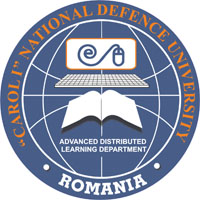WIKIPEDIA vs. ACADEMIA -An investigation into the role of the Internet in education, with a special focus on collaborative editing tools such as Wikip
WIKIPEDIA vs. ACADEMIA -An investigation into the role of the Internet in education, with a special focus on collaborative editing tools such as Wikip
Author(s): Timo Staub, Thomas HodelSubject(s): Education
Published by: Carol I National Defence University Publishing House
Keywords: Wikipedia; collaborative editing; learning goal analysis; knowledge creation and management; online learning; connectivism; higher education
Summary/Abstract: This paper considers Wikipedia and collaborative editing in general: what is Wikipedia, how does it work as a collaborative editing project? Who publishes there, how do these people collaborate, is there a hierarchy among them? And what about Wikipedia quality control: is it efficient, how good is the factual quality of the content? Can Wikipedia even be re-used for academic work - and if so, where and how? How does Wikipedia cope with new research findings; can they be found on the platform? What influence does Wikipedia have on research and education; how should universities cope with the fact that open knowledge can be found there within a matter of seconds? This paper addresses the issue in a rather hands-on and down-to-earth approach that will allow us to draw some interesting conclusions about the role of open Internet knowledge (such as thatwhich can be found on Wikipedia) for learning and knowledge creation. We will be placing a special focus on academia: for instance, how should universities define "knowledge" at a time when so many answers can be readily found on Wikipedia? Here the paper does not strive to come to generalized conclusions, but it does strive to find some modest, surprising and - last but not least - also practical answers. The current paper is based on library research, an online analysis of the current Wikipedia website, and a number of interviews with Swiss Wikipedia activists.
Journal: Conference proceedings of »eLearning and Software for Education« (eLSE)
- Issue Year: 11/2015
- Issue No: 01
- Page Range: 13-19
- Page Count: 7

